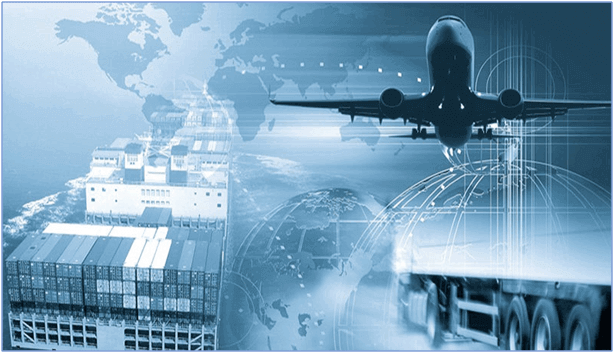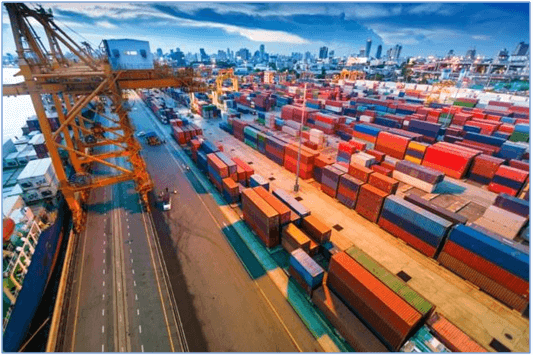Freight forwarders exist independent of any cargo carriers because a key component of a freight forwarders role is finding and negotiating the best value on behalf of clients. Take freight forwarders out of the logistics equation and the supply chain would falter. The services of a freight forwarder may be a non-essential shipping expense. However, a good freight forwarder can add exceptional value, not only for its clients but right along the global supply chain. If you need convincing that freight forwarding services are worth investing in, take a look at these eight-essential strategies.

Table of Contents
Specialised Expertise
Moving goods from A to B is no easy task – especially moving goods internationally. A specialist freight forwarder will make the process far simpler for all types of user, from novice importers to global businesses. It makes sense to utilise the years of experience that a freight forwarder has. Just as many companies now outsource functions like IT and marketing, there is value in contracting a freight forwarding agent to take on this role on your behalf over having to recruit internally.
Buying Power for Freight Charges
Freight forwarders are independent of any carriers. A key part of their role is finding and negotiating the best value freight charges on behalf of their clients. Freight forwarders are therefore experts who through their contacts and experience are set up to arrange the best rates available.
Because of all the business they can put a carrier’s way through numerous different clients, freight forwarders are in a strong buying position to drive down prices. Left to negotiate their own rates, very few shippers would have the same leverage, and would end up paying higher rates than an agent could negotiate on their behalf.
A freight forwarder will be able to advise of the most cost-effective shipping method as well as helping its client to balance both cost and value. Whichever mode of transportation you choose, it’s likely that you’ll benefit from the freight forwarder’s good relationships and connections when it comes to the bottom line.
End-to-End Service
Freight forwarders have a global network of partners which cover the full range of services required in the transportation of goods. Relationships with other freight forwarders, with carriers, with ground handlers and warehouse operators, with customs and financial brokers and local logistics services, are all part and parcel of what freight forwarders offer. The result is a truly end-to-end service, taking responsibility for delivering seamless movement of goods from door to door.

Improve Efficiency and Lower Costs
1. Develop Partnering Relationships
These should be done only with High-Quality Third-Party Logistic & Freight Management Companies. A close, communicative and collaborative relationship with the most reliable, service-oriented 3PL companies is one key to success.
2. Create a Scorecard
Partners with near-perfect, on-time performance levels, excellent safety records, and a consistent collaborative attitude are those that will aid in your success.
3. Implement Real-Time Data Technology
For an in-house freight or supply chain manager, having digital systems that track and monitor every element of the supply chain in real time is essential. Understanding where the shipments are and when these will reach the destination is essential to anticipating and solving problems. Technology can also help to create a range of potential scenarios for “what if” speculations.
4. Develop Contingencies for Last-Minute Orders
work with 3PL companies to understand how unexpected demand increase can be addressed. If a critical customer suddenly experiences a surge in sales for products or some other sudden need and is in danger of running out, how will you and your 3PL partners respond?
5. Anticipate Growth
Since every company’s objective is to achieve profitable growth, you should plan ahead to scale up your freight management system to accommodate expansion. Any significant incremental growth can quickly strain existing warehouse, transport, and staffing resources. Meet with 3PL partners to assess options for volume increases of 10%, 20%, 30%, and so on.
6. Enhance Your Company’s Sustainability Record:
Reducing fuel usage and costs by improving route planning, enhancing driver training, investing in equipment powered with more fuel efficiency, and other positive environmental practices can be an essential marketing plus for your business. Packaging changes can improve load ability while also reducing your carbon footprint per unit.
Time Efficiency
As the saying goes, time is money, and utilising the services of a freight forwarder can save a business both. Taking care of the entire process of moving goods is time-consuming, meaning additional work hours that a business has to pay for. A freight forwarder frees its clients from the time, stress and hassle involved, and outsourcing to an expert can often be more cost effective than trying to struggle through the process yourself.The technology and streamlined systems utilised by freight forwarders mean that the shipping companies, ports and other service providers that they deal with also benefit from quick, efficient transactions.
Improved Risk Management
The volatility of the logistics market, new regulatory guidelines and ever-changing client needs make it important for forwarding agents and customers, in general, to share concerns over risks in order to avoid being penalized or being put out of business. For instance, submitting inaccurate data can usually result in serious penalties. Great freight forwarders provide single points of data entry which makes it possible for information to smoothly flow throughout the supply chain without need for re-entry. Forwarders can also assess the risk exposure of each shipment and make necessary security arrangements in time.

Communication
E-commerce is a chaotic business environment, prone to last-minute changes ranging from adjusting carton dimensions to the forecasted velocity at which in-stock products sell.A forwarder who communicates clearly and effectively will save businesses money. A prime example is to make sure the same company partners with you across multiple time zones. When selecting a freight forwarder, ask them about their physical presence and/or capabilities in both the country of origin and destination. Communication doesn’t have a tangible price tag, but it delivers an incredible value (and peace of mind) while you focus on growing your business.Prior to confirming an upcoming shipment, pay attention to how your forwarder communicates with you. This will tell you a lot about their level of customer service and might reveal communication challenges.
Compliance
Finally, the complexity of international shipping should not be taken lightly. Documentation and administration are a key part of the process, with the need to meet legal and regulatory requirements across different jurisdictions.
Shipping and export documents, bills of lading, document delivery, letters of credit and customs declarations are all critical. Getting something wrong on the paperwork can lead to punitive additional costs or even fines.For peace of mind, it makes sense to employ qualified, experienced professionals who understand the precise requirements in every jurisdiction. Getting things right first time saves a lot of hassle and money in the long run.
Conclusion
Freight forwarding has always fostered good relationships and collaboration between exporters, importers, carriers, agents, the forwarders themselves and customers. This is achieved through logistics community networks and exchange of information anytime, anywhere. When all the stakeholders are on the same page, you can only expect work to proceed faster and with great efficiency.
References
Abdul Rahim Bin Daud. (2017). “8 Strategies for Successful eCommerce in a Supply Chain Fulfilment Centre’’. Retrieved from SIPMM: https://publication.sipmm.edu.sg/8-strategies-successful-ecommerce-supply-chain-fulfilment-centre, accessed 2/9/2018.
Amazon FBA (2018). “Choosing a Freight Forwarder.” Retrieved from https://www.thesellingguys.com/the-best-freight-forwarders-have-these-3-qualities, accessed 2/9/2018.
Brwilliams. (2018). “Freight Management Tips to Ensure Smooth Operations.” Retrieved from https://www.brwilliams.com/blog/freight-management-tips-ensure-smooth-operations, accessed 2/9/2018.
Chi Mai. (2017). ‘’Freight Forwarders Add Value to the Global Supply Chain.’’ Retrieved from http://blog.whaleau.com.au/10-ways-freight-forwarders-add-value-to-the-global-supply-chain-whale-logistics-blog, accessed 2/9/2018.
Lau Chee Leng. (2017). “Eight Essential Steps for an Effective Global Sourcing Strategy”. Retrieved from SIPMM: https://publication.sipmm.edu.sg/eight-essential-steps-effective-global-sourcing-strategy, accessed 2/9/2018.
Scott Pattinson. (2014). ‘’How Freight Forwarding Can Increase Efficiencies.’’ Retrieved from https://3pllinks.com/freight-forwarding-can-increase-efficiencies, accessed 2/9/2018.
[adsense]





